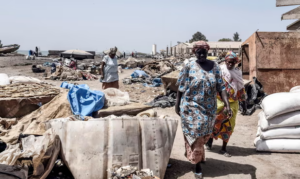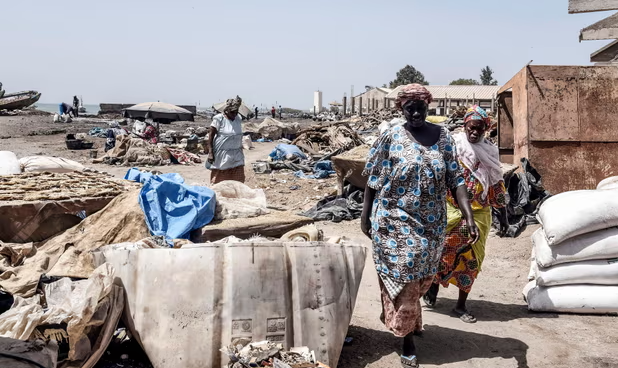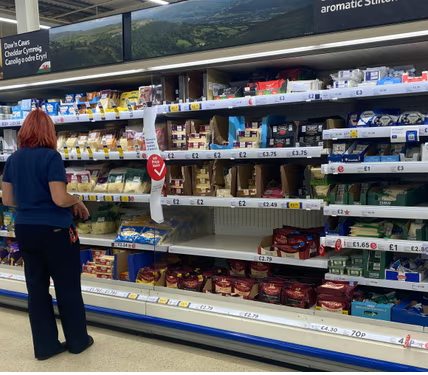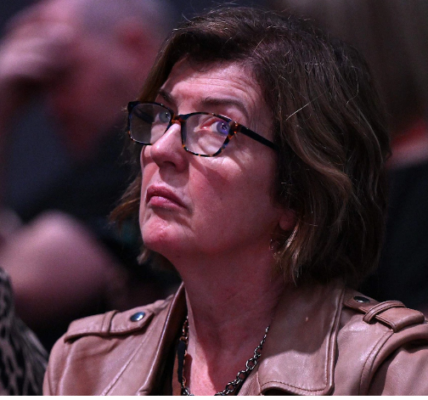Setbacks mean UN goal of ending extreme poverty by 2030 is impossible to hit, report finds

Workers at a deserted fish market in Senegal. The World Bank said countries with high levels of inequality were concentrated in sub-Saharan Africa, Latin America and the Caribbean. Photograph: Seyllou/AFP/Getty Images
Wars, debt, the climate crisis and the pandemic have combined to halt progress in the fight against poverty, the World Bank has warned.
The Washington-based institution said on current trends it would take more than three decades to lift the near-700 million people living on less than $2.15 (£1.64) a day above the widely accepted definition of extreme poverty.
In its Poverty, Prosperity and Planet report, the World Bank said the setbacks of recent years meant the goal set by the UN of ending extreme poverty by 2030 was already impossible to hit
Largely because of rapid growth in China, the global poverty rate fell from 38% in 1990 to 8.5% in 2024, but the rate of progress has come to a halt since 2019, and the figure is expected to decline only modestly, to 7.3%, by 2030.
Extreme poverty remained concentrated in countries with historically low economic growth and high levels of fragility, many of which are in sub-Saharan Africa, the report said.
Axel van Trotsenburg, the World Bank senior managing director, said: “After decades of progress, the world is experiencing serious setbacks in the fight against global poverty, a result of intersecting challenges that include slow economic growth, the pandemic, high debt, conflict and fragility, and climate shocks.
“Amid these overlapping crises, a business-as-usual approach will no longer work. We need a fundamentally new development playbook if we are to truly improve people’s lives and livelihoods and protect our planet.”
The report said it would take even longer – more than a century – to meet a more ambitious objective of raising incomes above the $6.85 a day deemed to be the poverty threshold for upper middle-income countries.
The bank defines upper middle-income economies as those with income a head of between $4,466 and $13,845 a year – a group of countries that includes Argentina, Botswana and China.
Currently, 3.5 billion people – almost half the world’s population – live on less than $6.85 a day and the Bank said population growth meant the number of poor people on this measure of poverty had barely changed since 1990.
The report said there had also been little progress on another development goal – to reduce inequality. While the number of countries with especially large gaps between rich and poor had declined from 66 to 49 over the past decade, the percentage of people living in countries with high levels of inequality had remained unchanged at 22%. These countries were concentrated in Latin America, the Caribbean and sub-Saharan Africa.
Max Lawson, the head of inequality policy at Oxfam, said: “With the richest 1% capturing more wealth than the bottom 95%, it is little wonder that it will take a century to end poverty. Rapidly and radically reducing inequality in every country should be the absolute top priority of the World Bank.
“We agree with the World Bank that ordinary people across the world are facing a lost decade, which will scar a whole generation, but at the same time the richest are looking at their best decade ever and these two things are closely linked.”
Nearly one in five people globally were likely to experience a severe weather shock in their lifetime from which they would struggle to recover, the World Bank said. Almost all those exposed to extreme weather events in sub-Saharan Africa were at risk of experiencing losses to human welfare because of their vulnerability.




